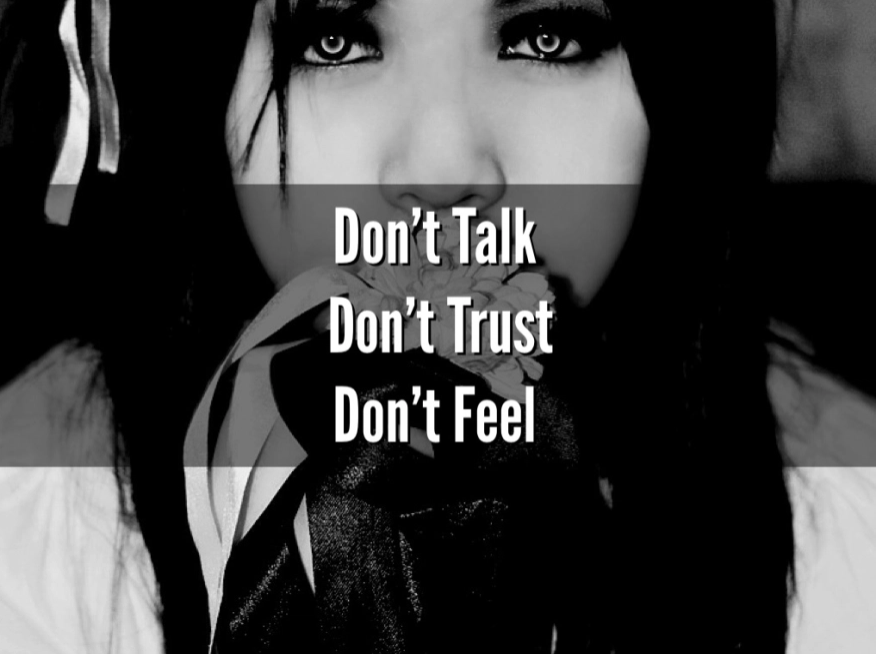Emotional Trauma And The American Family
A landmark article by the US Department of Veterans Affairs National Center for PTSD explains how the emotional trauma World War II imposed on American men profoundly changed how they functioned as men, husbands, fathers, and citizens.
“PTSD can make somebody hard to be with. Living with someone who is easily startled, has nightmares, and often avoids social situations can take a toll on the most caring family. Early research on PTSD has shown the harmful impact of PTSD on families.
This research showed that US war Veterans have more marital problems and family violence. Their partners have more distress. Their children have more behavior problems than do those of Veterans without PTSD. Veterans with the most severe symptoms had families with the worst functioning.
How does PTSD have such a negative effect? It may be because those suffering with PTSD have a hard time feeling emotions. They may feel detached from others. This can cause problems in personal relationships and may even lead to behavior problems in their children. The numbing and avoidance that occurs with PTSD is linked with lower satisfaction in parenting.”
Three Dysfunctional Family Rules

What was going on that family members needed to survive? It was the fear, anger, and control that now governed the average American family.
John Bradshaw explains the common theme that emerged in these homes, as the emotion rose to an intense level, especially between the husband and wife. Typically, the result is that the partners settle their issues with an “emotional divorce,” yet cannot make this known to the outside world in the midst of a culture of high expectations. So, the family would make everything look good on the outside – a façade of happiness – yet beneath the surface there was a shame-filled struggle with fear, anxiety, pain, and loneliness within every family member.
It is from this backdrop that the “rules” of a shame-based family emerged:
DON’T FEEL – DON’T TALK – DON’T TRUST
Families learned the “don’t feel” rule, largely because authentic feelings would expose deep shame and emotional pain. WWII veterans knew that to open themselves up to their feelings would open a floodgate that probably would take them to a place of no return. So, they categorically held all of their feelings in… and expected everyone in their home to do the same. Secondarily, feelings were taboo, as they would appear weak, lacking faith, and discontent in a world that expected everyone to be overtly religious, proud, and prosperous.
The “don’t talk” rule is what morphed into the “don’t air our dirty laundry” rule of the 60s and 70s (and maybe still today in some families). The belief was that if anyone in the family were to “talk” (to speak of anything that might challenge or expose the fragile pretend world within the family), others outside the family might perceive us as not being perfect and would surely judge us for our issues. A multigenerational gag order was placed upon the US family, and only now are courageous individuals beginning to challenge its validity.
The rule of “don’t trust” was much more subtle than the others. In this context, trust had little to do with the fear of someone being dishonest or corrupt. What family members could not trust was the emotional state of the man leading their home. One day he may come home jovial and happy, bringing gifts for the kids and kisses for the wife. The very next day, the same man may enter the house angry and raging, yelling at the wife that something wasn’t just perfect, and acting out his anger on the kids. This lack of consistency and predictability instilled enormous amounts of fear into every family member. This is the very scenario where the concept of “codependency” began to emerge as an effective (yet unhealthy) means of surviving within a toxic, shame-based home.
To some degree these continue to govern many families in our country today. More often than I can count, I meet with husbands and wives in my office who are struggling because of these exact issues. Most often, the husband works hard to provide financially for the family, yet displays little or no emotions or feelings, has little to say of any substance, and cannot be trusted to be emotionally safe within the family. Folks, we need to do better than that.
———-
Soul health and spiritual maturity cannot be separated. Our counselors are ordained Christian ministers as well as certified and licensed Christian counselors. We are able to help you experience freedom from shame, anxiety, depression, or marriage / relationship conflict with methods that are purely Christ-centered. Please click on this link to learn much more about how our MARRIAGE COUNSELING can help you become a more authentic follower of Christ, and help you find freedom from identity dependence.
Life Training offers convenient sessions at our office in Louisville, Kentucky, as well as online counseling via Zoom or FaceTime. Our non-profit counseling practice has an outstanding track record for over a decade helping men and women, individuals and couples who are ready to move beyond anxiety, depression, and conflicts in marriage or other relationships find hope and healing in their lives. Contact us today at 502-717-5433, or by email at drdave@lifetrainingcounseling.org
